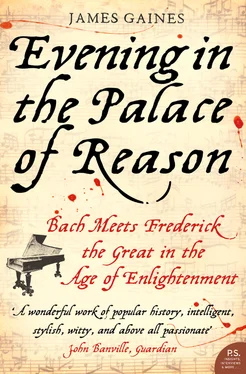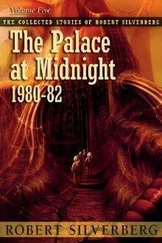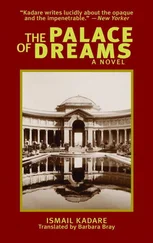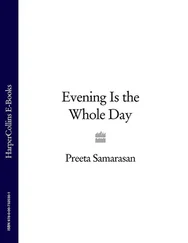so why are you standing about idly? Run, all of you, for the salvation of your souls … Do you not hear the voices of your dead parents and other people, screaming and saying, “Have pity on me, have pity on me … We are suffering severe punishments and pain, from which you could rescue us with a few alms, if only you would.” Open your ears, because the father is calling to the son and the mother to the daughter.
When Martin Luther, still an Augustinian monk, had the temerity to point out that nowhere in Scripture did it say the pope could move people around in the afterlife, that in fact “indulgences” were spiritually dangerous because they tempted people to believe they could sin now and pay their way out of it later, there was, you might say, hell to pay. Proceeds from indulgences had by then become a fiscal addiction, not only to the pope but also to the likes of Frederick the Wise, who needed the money to fund the University of Wittenberg, among other uses.
Frederick’s unhesitating and unwavering support of Martin Luther had several motives—among others, he resented a Hohenzollern cardinal raising money from his people—but one of them was principle. Frederick was a devout man in the best tradition of Christian princes, who considered themselves responsible for the spiritual as well as the practical welfare of their subjects. He actually believed in the power of his relics and in the pope’s ability to relieve souls from purgatory, but he would not allow Luther to be sacrificed for a contrary belief, and so kept him safe. In a letter to Frederick on behalf of himself and the emperor, the pope exploded:
We have you to thank that the Churches are without people, the people without priests, the priests without honor, and Christians without Christ. The veil of the temple is rent. Separate yourself from Martin Luther and put a muzzle on his blasphemous tongue [or] in the name of Almighty God and Jesus Christ our Lord, whom we represent on earth, we tell you that you will not escape punishment on earth and eternal fire hereafter. Pope Hadrian and Emperor Charles are in accord. Repent therefore before you feel the two swords.
Frederick wrote back simply, “I have never and do not now act other than as a Christian man.” Without such a friend—a prince and elector whom he continued to criticize harshly and publicly whenever he thought it right to do so—Martin Luther would long since have been burned at the stake.

WHAT LUTHER’S GREAT and wise biographer Roland Bainton said of Luther’s courage before the pope could help explain that of Frederick the Wise as well: “The most intrepid revolutionary is the one who has a fear greater than anything his opponents can inflict upon him.” What was the fury of the pope or the emperor to that of God? For Luther, for Frederick the Wise, for their time and place and Sebastian’s as well, the fear of God was beyond palpable, it was physical. Hell was not a metaphor. It was a place you went to, body and soul, where you would burn in actual, unquenchable fire, in unimaginable agony, forever and ever. The devil had form and face. He wanted your immortal soul desperately, and he was smarter and more clever than you could ever be. The world was a great battlefield, life an unending contest between him and Him, in which you were caught squarely in the middle, your eternal safety at stake, your only protection an amorphous wraith called belief.
Small wonder people believed. Horrifying examples of the devil’s work were appearing every day in the here and now of the sixteenth century—in the bubonic plague that wiped out half the population of Eisenach in one year, in the floods that surged through Thuringia, “the water [running] with so mighty a force, and such a stream, that it bare the bodies of the dead before it out of their graves in the Church-yard,” and in the frequent, widespread fires that sought out the timber of their homes.
And for all that, there was no horror to compare to what rained down during the wars that began in 1618, which fed themselves on belief. For thirty unimaginably long years, all the powers of Europe ruthlessly exploited the forces unleashed by the Reformation and Counter-Reformation to inspire and poison allegiances meant to serve nothing so much as expansionist ambitions. The play of shifting alliances and political treacheries was wanton, and in such a tangle of snakes Germans high and low were as powerless as souls on the battlefield of God and Satan. Using religion as a blunt diplomatic instrument proved so devastatingly successful that all the major combatants—Spain, France, England, Sweden, the Dutch, and the Hapsburgs—chronically ran short of money to pay their mercenary generals for their mercenary soldiers, who thereupon began to take what they could not earn through pillage the likes of which had never been seen before. Rural peasant families were the easiest prey, but even walled towns would fall to sieges that lasted long enough. Eventually the towns devised a crude bell-and-bonfire warning system that allowed some chance of escape from the various crisscrossing armies, but as often as not the soldiers would just take the time to hunt the escapees down, take their valuables, and murder them where they hid. Rape and massacre became the soldiers’ recreation, and revenge was terrible when peasants with pitchforks found themselves in a position to exact it. When all the animals were dead and the fields lay gleaned and fallow, epidemic famine caused soldiers and civilians alike to eat the unimaginable. They ate grass and twigs and the skins of dead rats. They ate bodies from gallows, corpses from graveyards, even babies from their cribs. Thirty years later, a third of the population was dead, and the people who remained on the battlefield of Germany—or rather of Germanies, the loose collation of a few thousand now bankrupt dukedoms and princelings—were consigned by the Treaty of Westphalia to an indefinite future of encirclement by Europe’s great powers and left to a deranged and hopeless peace.

EVERY ARMY HAD its camp followers of prostitutes, hustlers, procurers, and freelance impresarios, ready to whip up a party for their restive military clientele, and so among the followers of every camp were musicians. This was not a time when one could be fussy about jobs. As a result, among the less significant casualties of the Thirty Years War was the reputation of musicians, who had, as it were, accompanied the mayhem and, as the coarseness of what they saw took its toll on them, had taken their share in it. Thus was born the College or Union of Instrumental Musicians of the District of Upper and Lower Saxony and Other Interested Places, a formal musicians’ guild, whose bylaws give some hint of just how disreputable musicians were then held to be. The member was enjoined to “conduct himself decently … abstain from all blasphemous talk, profane cursing and swearing” and not to “divert himself by singing or performing coarse obscenities” or “give attendance with jugglers, hangmen, bailiffs, gaolers, conjurors, rogues or any other such low company.” The drafters further felt the need to say that at private parties “nothing shall be stolen from the invited guests.”
Sebastian Bach’s grandfather, born in 1613, lived through the worst of the Thirty Years War as an adult. After serving for a time “waiting on the Prince” in Weimar, he married the daughter of a town musician. (Such marriages inside the trade were common. Guild rules specified eight years’ training before a musician could hire himself out as a master, but marrying a master’s daughter cut two years from the mandatory time.) He no doubt suffered from the generally low opinion of musicians in his role as a town musician in Erfurt and later in Arnstadt, where his younger brother had secured the coveted post of chief organist to the court and churches. The brother too had married by then, a step that was a precarious act of faith, as Philipp Spitta pointed out in his magisterial nineteenth-century biography of Bach: During the war, men could guarantee neither the safety of their wives and children nor the security of their income. Despite his distinguished position in Arnstadt, which he held for fifty years, this Bach remembered that during the privations of the war, all the salary he received from the war-bankrupted court he had “to sue for, almost with tears.”
Читать дальше













